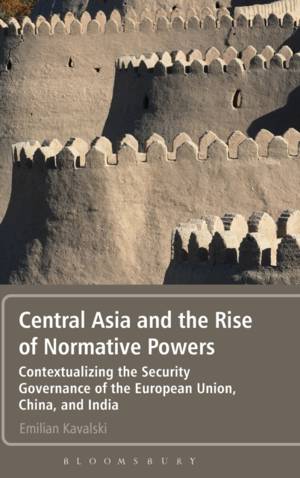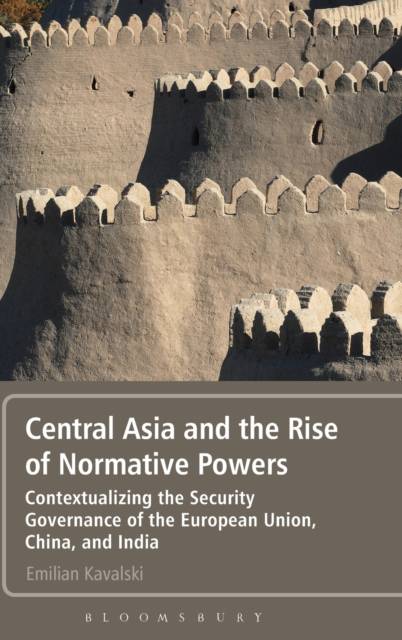
- Afhalen na 1 uur in een winkel met voorraad
- Gratis thuislevering in België vanaf € 30
- Ruim aanbod met 7 miljoen producten
- Afhalen na 1 uur in een winkel met voorraad
- Gratis thuislevering in België vanaf € 30
- Ruim aanbod met 7 miljoen producten
Zoeken
Central Asia and the Rise of Normative Powers
Contextualizing the Security Governance of the European Union, China, and India
Emilian Kavalski
Hardcover | Engels
€ 339,45
+ 678 punten
Uitvoering
Omschrijving
This book offers a unique analytical investigation of the international politics of the EU, China, and India in the context of their security strategies in Central Asia. It shows how the interaction between these three actors is likely to change the frameworks and practices of international relations. This is studied through their interactions with central Asia, using the framework of normative powers and the concept of regional security governance.
Briefly, a normative power shapes a target state's attitudes and perceptions as it internalizes and adopts the perspectives of the normative power as the norm. The work comparatively studies the dynamics that have allowed Beijing, Brussels, and New Delhi to articulate security mechanisms in Central Asia, and become rising normative powers.
This innovative study does not aim to catalog foreign policies, but to uncover the dominant perceptions, cognitive structures and practices that guide these actors' regional agency, as exemplified through the context of Central Asia. It will be an essential resource for anyone studying international relations, international relations theory, and foreign policy analysis.
Briefly, a normative power shapes a target state's attitudes and perceptions as it internalizes and adopts the perspectives of the normative power as the norm. The work comparatively studies the dynamics that have allowed Beijing, Brussels, and New Delhi to articulate security mechanisms in Central Asia, and become rising normative powers.
This innovative study does not aim to catalog foreign policies, but to uncover the dominant perceptions, cognitive structures and practices that guide these actors' regional agency, as exemplified through the context of Central Asia. It will be an essential resource for anyone studying international relations, international relations theory, and foreign policy analysis.
Specificaties
Betrokkenen
- Auteur(s):
- Uitgeverij:
Inhoud
- Aantal bladzijden:
- 240
- Taal:
- Engels
Eigenschappen
- Productcode (EAN):
- 9781441173881
- Verschijningsdatum:
- 27/09/2012
- Uitvoering:
- Hardcover
- Formaat:
- Genaaid
- Afmetingen:
- 155 mm x 231 mm
- Gewicht:
- 498 g

Alleen bij Standaard Boekhandel
+ 678 punten op je klantenkaart van Standaard Boekhandel
Beoordelingen
We publiceren alleen reviews die voldoen aan de voorwaarden voor reviews. Bekijk onze voorwaarden voor reviews.








